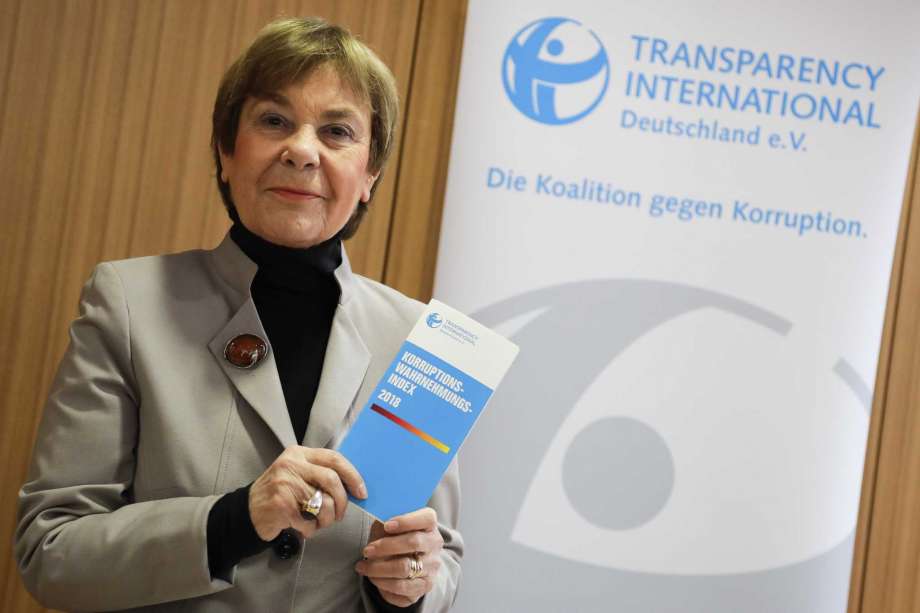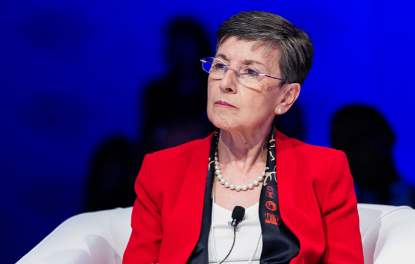29 January 2019
Edda Mueller (in the picture above), chairwoman of Transparency International Germany, presented the Corruption Perceptions Index 2018 yearly report on 29 January 2019.
The United States slid four points lower on a global corruption index in 2018, dropping out of the top 20 countries for the first time since 2011. It scored 71, down from 75, on a scale of 0-100. A score of 100 is considered “very clean”, while a score of zero is highly corrupt. American system of checks and balances has knocked the US out of the top 20 clean countries. This is a wake-up call for the US to tackle suppression of the media, weakening checks and balances, and increasing conflicts of interest, the report added. The report adds that growing nativism and populism, political polarisation, and a rise in hate crimes are exacerbating a loss of trust in the U.S. government’s institutions.
Britain is no longer one of the world’s ten least corrupt countries and it dropped to 11th place for the first time since 2012. The slipping in the rankings for 2018 could be an “early warning sign” not to let standards fall in the aftermath of Brexit. Britain faces pressure to lower standards once it leaves the European Union.
Transparency International said incidents including the suspension of Ulster MP Ian Paisley from Parliament for failing to declare two holidays paid for by the Sri Lankan government – as well as questions over the funding of EU referendum campaigns – served as an early sign of potential trouble in the political system.
Corruption Perceptions Index for 2018 showed more than two-thirds of countries scoring below 50. The report draws a link between corruption and the health of a democracy. Full democracies scored an average of 75 on the corruption index, flawed democracies averaged 49, and autocratic regimes averaged 30. Hungary dropped eight points and Turkey nine over the past five years.
The ratings reflect the “deterioration of rule of law and democratic institutions, as well as a rapidly shrinking space for civil society and independent media,” the report added. “Corruption is much more likely to flourish where democratic foundations are weak and, as we have seen in many countries, where undemocratic and populist politicians can use it to their advantage”, the organisation said.
Overall, Denmark led the survey as the least corrupt nation, with a score of 88, followed by New Zealand, Finland, Singapore, Sweden and Switzerland. Rounding out the top group were Norway, Netherlands, Canada, Luxembourg, Germany and Britain.
Somalia was rated the most corrupt with a score of 10, followed by Syria, South Sudan, Yemen, North Korea, Sudan, Guinea Bissau, Equatorial Guinea, Afghanistan and Libya. The Mainichi reported.















